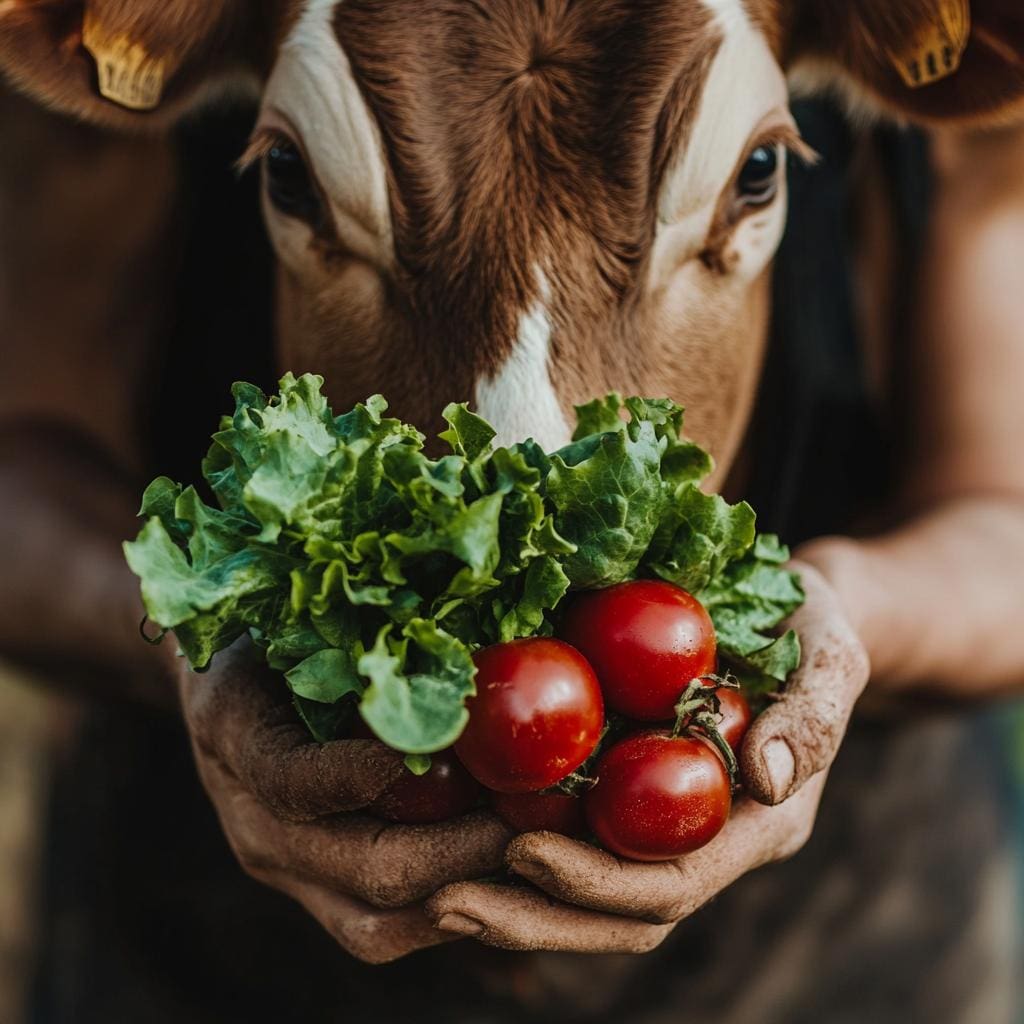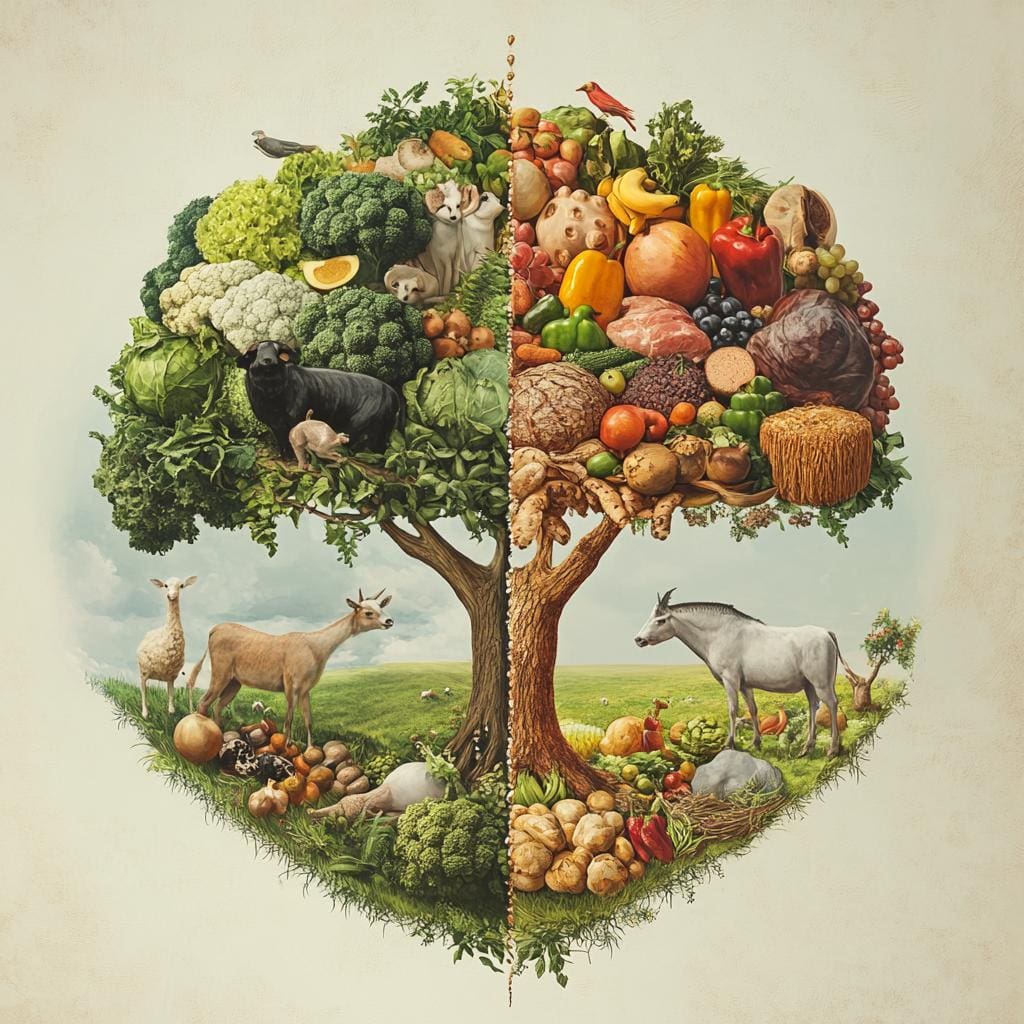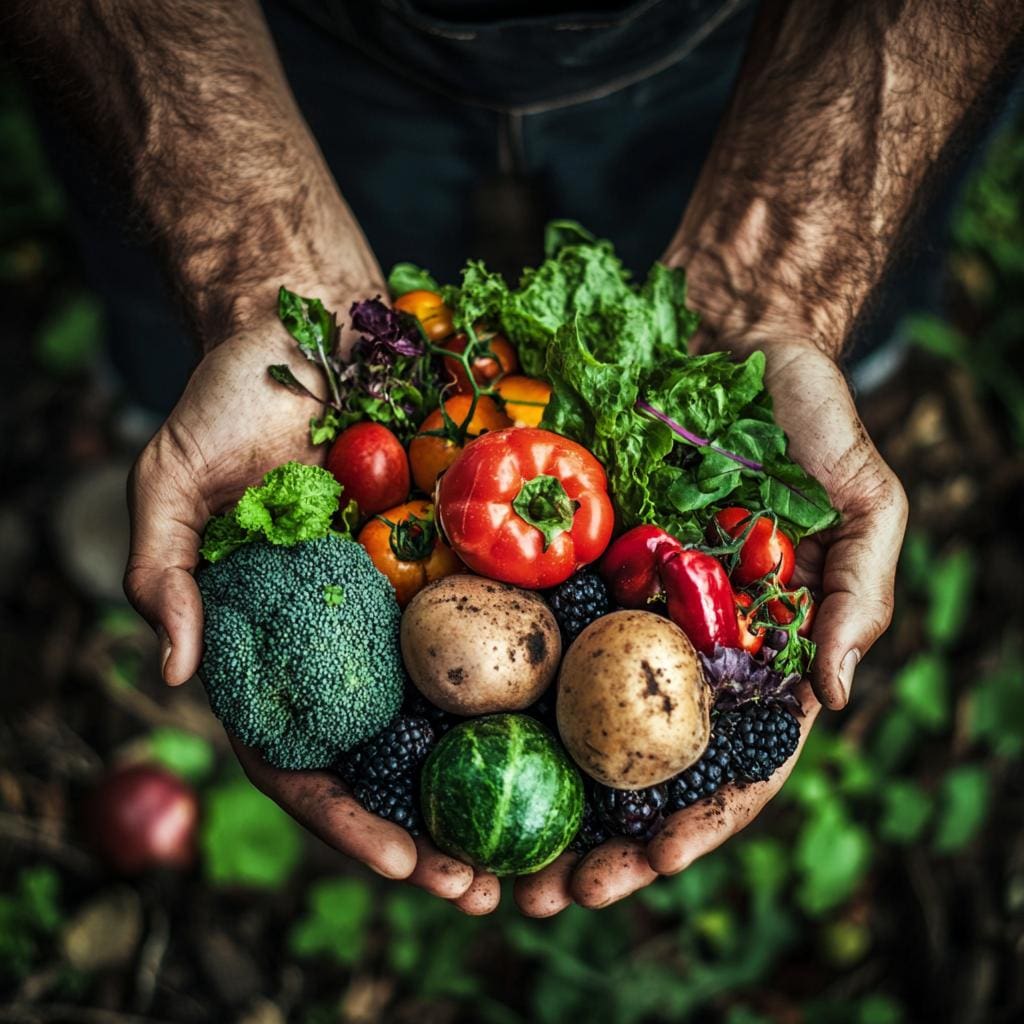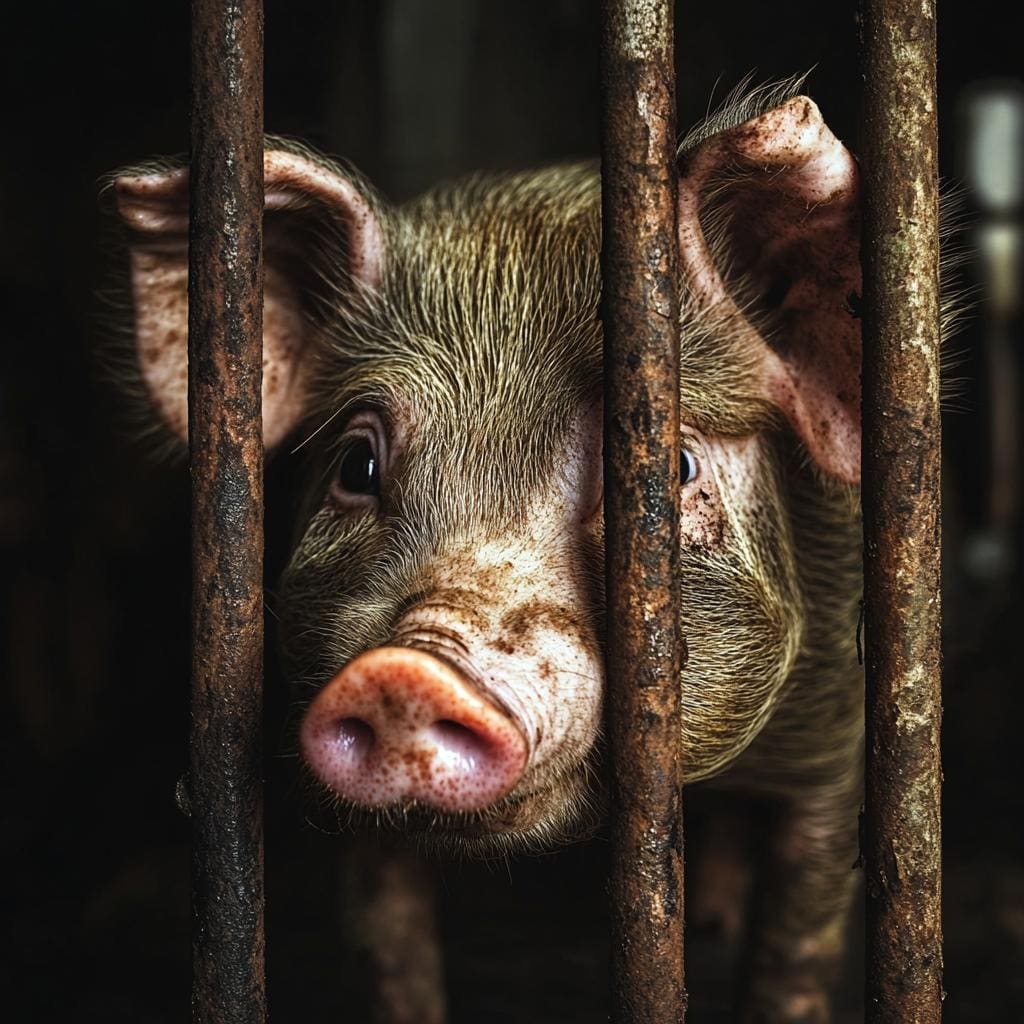Veganism is often misunderstood as a pursuit of personal health or environmental sustainability, but at its core, it’s a profound moral stance against the exploitation of animals. Stripping away secondary benefits, veganism is rooted in the ethical principle that harming sentient beings for human gain is inherently wrong—just as we oppose other injustices not for incidental advantages but because they violate fundamental rights. Inspired by the thought-provoking video *”Veganism is Only About the Animals,”* this article explores why veganism transcends convenience and self-interest to champion compassion and justice for all sentient life
In a world teeming with dietary choices and lifestyle decisions, the philosophy of veganism often finds itself under intense scrutiny. Many hypothesize it as a path to health or a stride toward environmental sustainability. However, anyone who delves deeper will soon uncover a core tenet, one that is frequently overlooked: veganism, at its heart, is fundamentally and unequivocally about the animals.
In our latest blog post, we take inspiration from a thought-provoking YouTube video titled “Veganism is Only About the Animals.” This compelling discourse leaves no room for ambiguity, asserting that veganism transcends personal and planetary benefits. It navigates an ethical realm, akin to opposing any injustices like rape—not because of extraneous benefits, but because they are inherently wrong. Join us as we explore the profound moral stance that shapes veganism, examining why this lifestyle choice is championed not for auxiliary gains but for the animals themselves.
Reframing Veganism Beyond Personal Benefits

The common perception of veganism often revolves around personal advantages such as improved health or environmental benefits. However, **veganism fundamentally addresses the ethical issue of animal exploitation**. Just as one would oppose rape not because it might have certain personal health benefits but because it is inherently wrong, veganism too, should be embraced due to its moral standpoint. Refusing to consume animal products means taking a stand against the injustice of exploiting and harming sentient beings.
We should recognize veganism as a commitment to ethical principles rather than a mere lifestyle choice for personal gain. This ethical commitment entails refusing to participate in practices that harm animals for human benefit. The focus remains on the injustice itself, not the secondary personal benefits that might come with it.
| Aspect | Ethical View |
|---|---|
| Diet | Refuses animal products |
| Purpose | Oppose animal exploitation |
- Core Idea: Veganism is primarily about rejecting animal exploitation.
- Comparison: Ethical stance similar to opposing other forms of injustice.
The Ethical Imperative: Why Its About More Than Health

When we look at any other form of injustice, it becomes clear that ethical considerations extend beyond personal benefit. **You wouldn’t oppose rape simply because it’s good for your sexual health**; you oppose it because it is fundamentally wrong. The same ethical logic applies to veganism. It’s not just about the health benefits or environmental impact; at its core, it’s about recognizing and opposing the inherent wrongness of exploiting and consuming animals.
Going vegan means understanding that **consuming animals and their by-products is an ethical violation**. This mindset shift isn’t about improving personal health or achieving sustainability—though these may be side benefits—but about aligning our actions with our principles. Veganism is a stance against a specific form of wrong, much like any other stance against injustice. To embrace veganism is to reject the cruelty involved in animal agriculture, driven by a deeper moral imperative.
| Ethical Stance | Injustice Addressed |
|---|---|
| Veganism | Cruelty to Animals |
| Anti-Rape | Sexual Violence |
Analyzing the Moral Parallel: Veganism and Other Injustices

When we dissect the foundation of **veganism**, it becomes clear that it parallels other moral stances against injustices. Consider the following points:
- Being against **rape** isn’t about promoting sexual health; it’s about recognizing its inherent wrongness.
- Similarly, rejecting the consumption of animals and their by-products is rooted in a fundamental opposition to the exploitation and harm of sentient beings.
The logic we use to address one injustice should hold consistent across others. Just as we condemn certain actions because they are morally wrong without looking for secondary benefits, we further the cause of veganism because it addresses a direct ethical issue regarding the treatment of animals.
| Injustice | Primary Moral Argument |
|---|---|
| Rape | It’s inherently wrong |
| Animal Exploitation | It’s inherently wrong |
Defining True Veganism: A Stance Against Exploitation

Adopting a vegan lifestyle is fundamentally rooted in **opposing exploitation**. Just as one wouldn’t claim to be against a grave injustice like rape purely for personal gain, one doesn’t become vegan for reasons apart from the ethical standpoint.
- Veganism stands firmly against the exploitation of animals.
- It is a moral stance rather than a dietary choice.
- Being vegan means acknowledging and rejecting the use of animals as commodities.
| Concept | Underlying Ethical Stand |
|---|---|
| Animal Agriculture | Rejecting exploitation and suffering |
| Dairy Consumption | Opposing the suffering of female animals |
| Entertainment | Condemning the use of animals for human amusement |
Ethics Over Convenience: The Moral Case for Animal Rights

In the realm of veganism, the focus lies solely on the animals. When we consider other forms of injustice, such as rape, it’s clear that our objections are rooted in the immorality of the act itself. You don’t oppose rape because it might incidentally benefit your **sexual health**; you oppose it because it’s unequivocally wrong. The same logic underlies the ethical basis for veganism.
Rejecting the consumption of animals and their by-products stems from the recognition that these actions are inherently wrong. This moral stance is the foundation of veganism, and it can’t be diluted by personal benefits unrelated to the core issue. Much like how other injustices are opposed due to their moral failings, veganism is adopted not for convenience, health benefits, or environmental concerns, but because exploiting animals is fundamentally unjust.
| Moral Injustice | Reason for Opposition |
|---|---|
| Rape | It’s wrong |
| Animal Exploitation | It’s wrong |
- **Veganism is about moral principle, not personal gain.**
- **Animal rights are central to the vegan ethos.**
- **Parallels with other injustices highlight inherent moral objections.**
Final Thoughts
As we wrap up this deep dive into the YouTube video titled “Veganism is Only About the Animals,” it becomes evident that, at its core, veganism transcends personal benefits. Much like any other social justice movement, the ethos of veganism centers on the ethical treatment of beings who cannot advocate for themselves. Just as we oppose injustices in human contexts because they are fundamentally wrong, veganism calls us to reject the consumption of animals and their by-products on moral grounds.
We hope this blog post illuminated the principle that veganism’s true north is the welfare of animals, challenging us to reflect on our choices through an ethical lens. So the next time you consider the reasons behind veganism, remember that it’s not about personal gain but about extending compassion and justice to all sentient beings.
Thank you for joining us on this exploration. Until next time, let your decisions be guided by empathy and ethical consideration.



